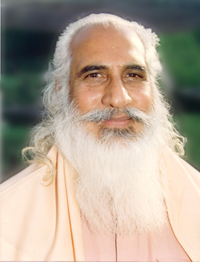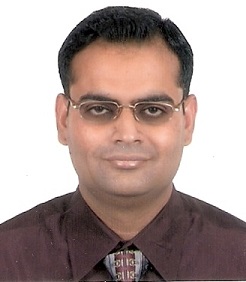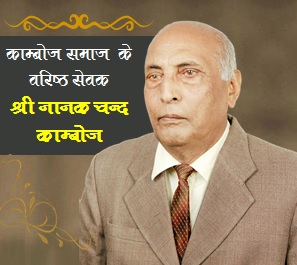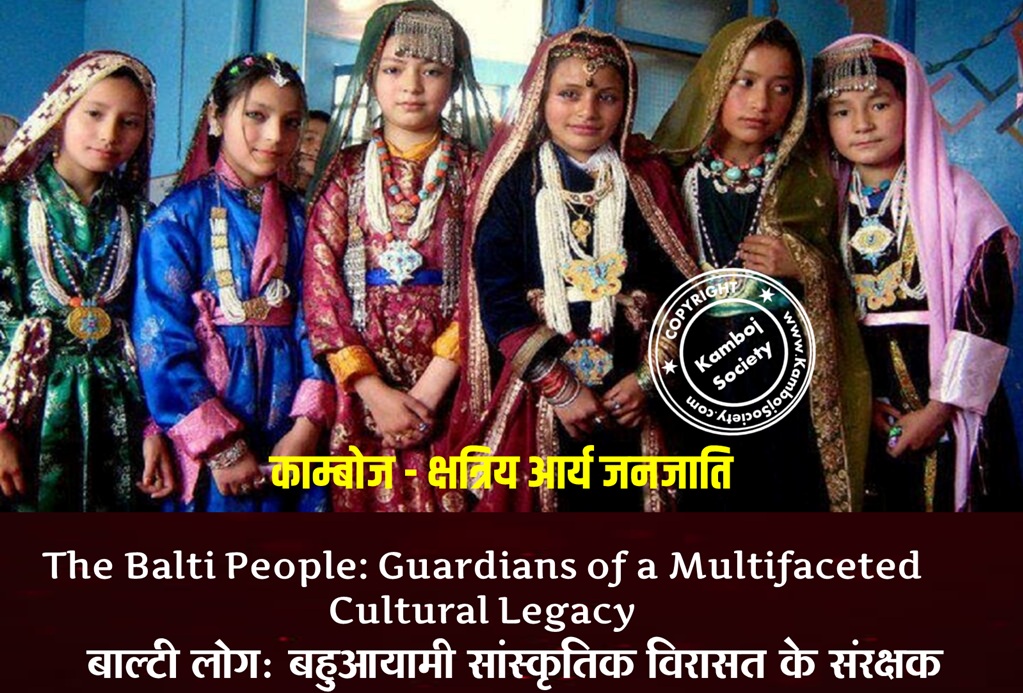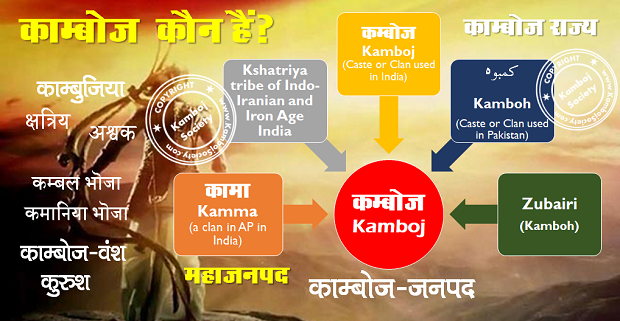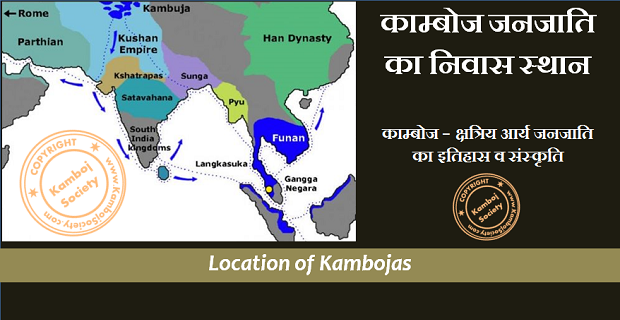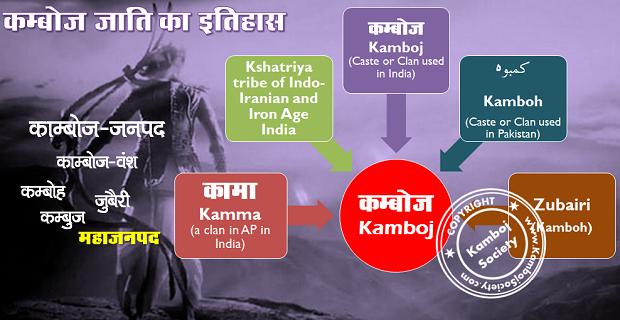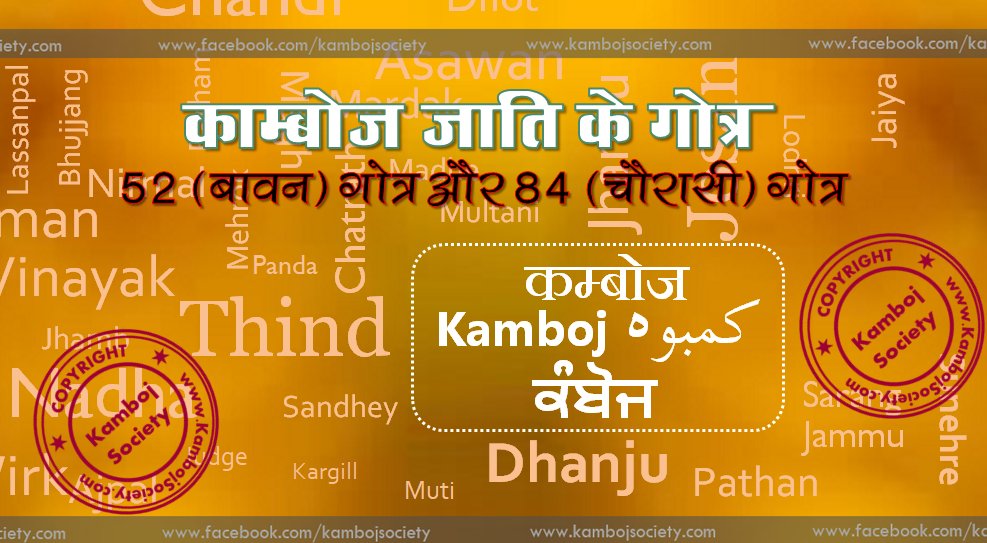All people want happiness, which no one can ever snatch away; which stays with them all the time and everywhere; which never diminishes or discontinues; a happiness which is infinite and inexhaustible. Whether a person be a king or a beggar, an old man or a child, educated or uneducated - all people without exception are moved and led by this universal want (desire) for happiness. This urge for happiness is neither born of samskaras or idiosyncrasies, nor is it connected with education. Again, it is also not confined to any caste, creed, religion, country or nation. This want is undisputedly a universal phenomenon and most basic and fundamental in its nature.
As a matter of fact, to call this urge even a want is not proper. It is the deepest call (cry) of the inner soul of man, which has been separated, as it were, from its divine source and which longs to return unto Godhead. You can try a thousand, thousand times to suppress this inner call or to kill it, but you will never succeed. Though we may not hear this inner call in the commotion of our thoughts and cravings of this world, whenever we stop for a while and looks within, we are certain to hear this irresistible inner call of the soul. The call ceases only when the inner soul of man has realized its pure, true Being, which is infinite and beyond time and space.
But for those saints and sages who are Self-fulfilled and ever absorbed in the perfect love-knowledge of the Divine, no man in this world can claim truthfully and with utmost sincerity that he is contented and fulfilled in every respect. This universal call of the inner soul of all human beings, the sages who have attained Divinity, and the holy scriptures, are testimony to an eternal Bliss, unlimited by time, space and causality, that does exist and can be realized by man. But the proof of sugar being sweet is doubtless in the eating of the sugar for oneself, and seeing that it is sweet. The supreme divine Being is, therefore, termed as Svayam Samvaidya; the One who can be experienced by oneself, for oneself. To realize the Divine first hand, by self-verification, is certainly the direct proof of His existence.Here, the true goal of life, as well as the right means for its achievement, have been presented in the form of the spiritual and pragmatic teachings of Baba Bhuman Shah Ji as aphorisms, in an endeavour to contain the boundless ocean of wisdom within this little booklet. In these teachings, the words are mine, but the teachings are verily those of Babaji, completely in concordance with his divine life. I can modestly claim this, in the light and on the basis of my sadhana in many births, performed under the full protection and gracious guidance of Baba Bhuman Shah Ji, as also on the basis of my achievements. Should I not have not been able to put forth the teachings of Babaji in appropriate words, this certainly betrays my incapability of expression, for which may the readers kindly forgive me.
Should you read the fundamental and brief teachings of Babaji without your readymade beliefs, preconceived convictions and sheer bigotry, and reflect upon them with a composed, impartial and open mind, then you will surely get a glimpse of the divine personality of Babaji, full of compassion and spiritual wisdom. Even then, it seems necessary to offer a brief introduction of Reverend Baba Bhuman Shah Ji. Some devotees of Babaji have also written books on his life by picking clues from here and there, but not all of these books are generally available. In this age of materialism, there is a race going on among people to amass wealth by fair or foul means, a race in which no one wants to be in second position. The life of man today has become so fast that he does not find time to stop for a moment and reflect on who he is, where he has come from, where he has to go to, and what he is really seeking. In such a predicament, where is the time for a man to devote to reading very lengthy and voluminous books? I therefore hope that people will be able to reap a good harvest of spiritual wisdom by reading this small booklet on Babaji's life and his inspiring teachings.
Reverend, loving and lovable, and born sage celibate, Baba Bhuman Shah Ji was one of those greatest sages of the eighteenth century who dedicated their whole lives to the unbroken remembrance of the Divine, to selfless service to the poor and needy, to awakening people from hypnotic slumber of attachment with worldly and temporal pursuits, and to guiding and directing them to follow the path of Truth. In the words of the Bhagavad-Gita, Babaji lived in the world like a lotus leaf in water, Padma Patram Evambhsa, untouched by the vagaries of materialistic way of life.
Baba Bhuman Shah Ji was born on 14 April 1687 A.D. (2nd of Baishakh Vikarmi Sanvat 1744) to Mata Rajo Bai and Ch. Hassa Ram Kamboj. His father, Hassa Ram, and his mother, Rajo Bai, were both ardent devotees of God and they had an unshakable faith and profound trust in the divinity of Udasin sage Baba Shri Chander Ji, who was the son of the well known revered Guru Nanak Dev Ji Maharaj, the mystic sage of the 15th century. They lived in village Behlolpur, Tehsil Deepalpur, district Montgomery, Punjab, now in Pakistan. Hassa Ram was the Namberdar of the village and had some agricultural land from which he earned his livelihood. His family led a simple life full of contentment and spent most of their time in the remembrance of God and in meditation. Their life was verily an ideal married life. Their bodies were in the world but their minds were always enjoying communion with the Divine.
For many, many years Hassa Ram and Rajo Bai had no children. Eventually, when they had reached quite an advanced age, a very graceful, quiet and serene son was born to them. Eleven days before the birth of this divine child, his mother, Mata Rajo Bai, saw Baba Shri Chander Ji every night in a dream and remained day and night filled with a transporting bliss in the sweet and loving memory of that dream experience. To everyone's surprise she felt no labour pains at all at the delivery of this divine child. The parents had an invincible belief that their beloved Ishta, Baba Shri Chander Ji Maharaj, had been propitious and had himself taken birth as an Avatar in their home in the form of the divine child. They gave the child the name of Bhumia (who later became renowned as Baba Bhuman Shah). There was so much tejas and irresistible glow on the face of Bhumia that anyone who saw him once, would be drawn again and again to see him. The news of the birth of this divine child spread rapidly throughout many villages around, with the result that their home became crowded with visitors coming for the darshans of Bhumia. Hassa Ram and his wife would welcome the visitors with due love and respect and served them according to their means. Their home, their bodies and hearts were all filled with divine joy, as if heaven itself had descended into their home.
As the child grew up, extraordinary supernatural powers began to unfold in him spontaneously. Many times black cobras were seen wrapped around his body and playing with him. It needs to be mentioned here that in the denomination of Udasin saints and sages, Baba Shri Chander Ji has been understood to be an Avatar of Lord Shiva, while his father, Guru Nank Dev Ji, an Avatar of Lord Vishnu. In the Puranas, the Hindu mythological books, Lord Vishnu has been shown as resting on a big cobra as His bed, and Lord Shiva has been depicted with cobras rolled around His neck and arms in loving postures. In this context the loving play of cobras with the child Bhumia can easily be understood. In Sanatana Dharma, Lord Vishnu and Lord Shiva are regarded as the two aspects of the same God; there is no essential difference between them. Accordingly, Guru Nanak Dev Ji and Baba Sri Chander Ji are worshipped and adored as one and the same divine Being. In the temples of Baba Sri Chander Ji a couplet is recited during his worship, which can be translated into English as follows:
"Guru Nanak is the divine incarnation of Lord Vishnu and Baba Sri Chander, the divine incarnation of Lord Shiva. One who worships and adores them as one and the same divine Being finds supreme joy."
The belief of Bhumia's parents that Baba Shri Chander Ji had incarnated in their home later proved to be a fact when gradually the supernatural powers, divine love and wisdom of Baba Shri Chander Ji began to manifest in Bhumia. The lifestyle of Bhumia was becoming exactly similar to that of Baba Shri Chander Ji. The child Bhumia having grown up into an adult, would often remain absorbed within, and in contemplation. Also, miracles began to happen through him effortlessly. It is neither possible nor intended to describe all these miracles, but it does seem indispensable to mention two or three of these supernatural happenings.
Bhumia would serve his parents with all respect and love, helping them with agricultural chores and taking the cows for grazing in the nearby forest with other children, just as Lord Krishna had done in His times. But in spite of all this, he would sit under a tree and spend most of his time in contemplation and remembrance of the Lord. While doing the manual work, such as carrying a shallow pan full of earth on his head, he would feel pleased to be doing this work. But the great wonder, as witnessed by his parents and other villagers, was that the pan-load of earth would not touch his head, but would hover three or four inches above it as he walked. People from distant places would come to see this supernatural event and become wonderstruck by the extraordinary powers of Bhumia, as also the divine Lila. They began to regard Bhumia as a born Yogi and would prostrate themselves before him in reverence. But Bhumia, unassuming and humble as he was, would only say "This happens spontaneously through the divine power of the Lord. I don't do anything myself, nor do I intend such things to happen." From that very time the fame of Bhumia spread far and wide in that area. It looks very superstitious to a rationalist that a loaded pan of earth could move by itself in space above the head of Bhumia without any support. But the omnipotent Lord sometimes works transcendently and intervenes in the lives of his ardent devotees, working, as it were, from above and beyond His own laws of nature.
According to the Bhagavata-Purana, a red-hot pillar of iron becomes cold when the great devotee Prahalad is tied to it. When Prahalad is pushed off the top of a cliff to be killed, he lands safely and does not get even a single scratch on his body. We find the description of such supernatural events in the holy scriptures of all religions. I have personally experienced the supernatural powers of Baba Bhuman Shah Ji through his grace. He had been protecting this body from very critical situations during the period of my sadhana and guided me directly on the path to Self-Realization. I, for myself, can never doubt the veracity of his supernatural powers and need no proof thereof. I have always had the feeling - to say it in the words of an Urdu couplet:
"I am thine, the boat is thine, the ocean is thine, the shore is thine."
From the spiritual standpoint, the event of the pan full of earth not touching Bhumia's head can be interpreted as meaning that Bhumia had reached, even at his early age, that highest spiritual state in which a sage who is established in divinity, no longer feels this world as a burden, but remains beyond the impacts of pleasure and pain and sees the Divine in each and every object, situation and relationship. The other import of this wondrous event is that it signifies the truth emphasised in the Bhagavad-Gita and the Gurubani, that the Divine takes upon Himself all the responsibilities and obligations of His devotees who have completely surrendered themselves unto the Lord. There can be no doubt about it, that in the events that happen in the lives of enlightened sages and Avatars, some spiritual mystery is invariably involved.
Hassa Ram moved with his family from Bahlolpur to Deepalpur for the education of Bhumia. He constructed a house, purchased some agricultural land and continued with his agricultural profession. He arranged for Bhumia to be admitted to study in a school run by a Pandit. During his studies Bhumia would ask Panditji such intricate questions about God that the Pandit became awed and could not satisfy him. Seeing the deep aspiration and longing for God in Bhumia, the Pandit was convinced the boy was no ordinary soul. Bhumia also didn't pay much attention to his studies, but spent most of his time in contemplation and in communion with the Divine.
People would wonder to see the deep love and wisdom of this young boy's religion and spirituality. News of Bhumia spread to all the villages around, and he became the centre of discussion among many people. They started believing that Bhumia was surely a born great soul and an embodiment of divinity. People would come for his darshans, ask questions about God and religion and go away completely convinced. It also enhanced the status of his parents who were showered with respect. Hassa Ramji and his wife would feed all the visitors, seekers and devotees and serve them with due love. In this way his time passed rapidly enjoying the divine play of this divine young boy.
Bhumia was probably about 13 years old when Guru Govind Singh Ji, the 10th Guru in the line of Guru Nanak Dev Ji came that way near Deepalpur, travelling with his convoy of devotees. Bhumia went to him and requested to be initiated into a mantra and to become a monk. Guru Govind Singh Ji blessed him and said: "Your Gurudev is the great Udasin saint Baba Pritam Dass Ji, living in the town Pakpattan, which is situated about 30 kilometers from Deepalpur. Go to him and be initiated into Guru Mantra from him. He will recognize you at once and will make you a monk. The name and glory of Udasin saint Baba Shri Chander Ji will be spread through you." Having said this, Guru Govind Singh Ji moved ahead with his convoy.
The aspiration of becoming a monk had, by then, become very strong in the heart of Bhumia and he expressed his desire to his parents and sought their permission. His parents were deeply devoted to Baba Shri Chander Ji. They felt in their hearts the prompting of Baba Shri Chander Ji, and after initial reluctance agreed to Bhumia's request and sent him to Pakpattan according to his wish.
Having reached Pakpattan, Bhumia went to the Ashram (Math) of Baba Pritam Dass ji, bowed before him and requested humbly to be initiated into a mantra and be given the robe of a monk. Hearing this, Baba Pritam Dass Ji was exhilarated and lifted Bhumia up off his feet, embraced him, and said: "I know you are the living embodiment of my beloved Ishta, Baba Shri Chander Ji, and have come here only to bless me and to fulfil the norms of scriptures." He thereupon initiated Bhumia in the Udasin denomination of monks and changed his name to Baba Bhuman Shah.
Having spent some time in the service of his Gurudev, Baba Bhuman Shah Ji came to the village Kutub Kot, situated between Pakpattan and Deepalpur, and stayed in the jungle near a well on the outskirts of Kutub Kot. His name and glory as the wonder child Bhumia had already spread in this area. The news of his coming and staying there spread like wildfire, and aspirants of all faiths - Hindus, Muslims and Sikhs - thronged to see him. All the time, Baba Bhuman Shah Ji was surrounded by devotees and seekers, who realized their desires and aspirations with his grace. The personality of Baba Bhuman Shah Ji, soaked as it was in the love of God, radiated very strong spiritual magnetism. Most of the people would feel inexpressible satisfaction and joy in being near him. Everyone who came to him with any desire would be blessed and would return contented. Baba Bhuman Shah Ji was verily an infinite ocean of selfless kindness and compassion. Any number of rivers may come and fall into the ocean or evaporate out of it, it makes no difference to the ocean at all. Such was the divine personality of Baba Bhuman Shah Ji, that all the qualities of a God Realized saint, as mentioned in the Bhagavad-Gita and the Sukhmani Saheb of Gurubani, were present in their fullness in Baba Bhuman Shah Ji. The supernatural powers which are noted down in the Patanjali Yoga Darshan were completely manifest in Baba Bhuman Shah Ji. Though on certain occasions, he did wilfully make use of those powers in order to create faith in God among some people, he would rarely display those divine powers to gain cheap popularity or material benefits. He was a very unassuming, simple, quiet and modest person.
The village Kutub Kot, where Babaji was then staying was the sole property of a Muslim landlord, and the majority of its inhabitants were Muslims. In those days Hindus, Sikhs and Muslims lived in that part of the country in harmony and peace, particularly in that village where all lived as brothers and sisters. The few disputes that arose among them were not on the basis of religion but due to greed, anger, clash of egos, etc. While Hindus and Sikhs freely used to go to God intoxicated Muslim Sufi Fakirs to seek their blessings, Muslims, too, would go to Hindu and Sikh saints and sages established in God, to have their darshans and seek their favours. Therefore seekers of all faiths also used to come to Babaji.
Once it so happened that the Muslim landlord of Kutub Kot village, whose name was Lakha Wattoo, had been arrested for some crime and put behind bars in the Lahore jail by order of the Governor of Punjab. His mother, Bakhtawar by name, was very much distressed and agonised. Totally helpless, she didn't know what to do. When she heard about Baba Bhuman Shah Ji's compassionate nature, she came with her relatives to him, wept before him and implored him to get her son released from the jail. Babaji was very much moved while listening to her woeful story and consoled her. After a pause, to everyone's surprise, he revealed to them: "Your village Kutub Kot is a place where, in my previous birth, I used to do austerities (tapas) and sadhana." Then he smiled and continued: "Surely I will get your son released from jail, but you will have to vacate your village and settle elsewhere. The place of sadhana of my previous birth would once again be used for running a free kitchen and for the devotees to pray to and contemplate on God."
Bakhtawar, very upset and agonised as she was at the separation from her beloved son, at once agreed and said: "Sir, should my son come back home safely, released from the prison, we will obey what you ask us to do." The divine play of the omnipotent Lord is inscrutable and incomprehensible. Within only four days Lakha Wattoo was released from the prison and came home. Getting her son back, his mother, Bakhtawar, was overwhelmed with joy. She bowed in her mind to Babaji and thanked him again and again. Dumbfounded and unable to understand anything, her son narrated to his mother and other relatives the strange incident of his release from the jail: "Yesterday night a saint whose face was very serene and surrounded by a halo of celestial light, appeared in my prison cell, and the whole cell became aglow with a very soothing dim light. At first I was scared, but the Fakir-saint said compassionately: "Don't be afraid, I have come to take you back to your home. Your mother is in great agony without you." Saying this Babaji opened the chains on my feet and said: "Follow me." I started walking behind him. Babaji passed through the walls of the prison. I also followed him in the aura of light enveloping his body and came out of the cell as well as the boundary wall of the prison. Walking with him in that light, within a few seconds we both reached near our village. I do not know and cannot understand how this all happened. I felt as if it was all a dream. Meanwhile the saint disappeared, and I have come home." All the listeners were amazed and overawed by Babaji's compassion and divinity.
The very next day Bakhtawar went to see Babaji with her son. He was sitting there as usual with his many devotees. As soon as Lakha saw Babaji, he recognised him at once and exclaimed: "This is the Babaji who freed me from the prison and brought me back home!" Then he fell at the feet of Babaji. All the people around started chanting "Glory to Babaji". The whole atmosphere of the place became surcharged with joy and faith in the Lord. The news of this supernatural event spread within a couple of days to all the villages around, and people from distant places started flocking to Babaji. They would bow before him and seek his benedictions.
In the meantime the gentle Muslim lady Bakhtawar, the mother of Lakha, arranged an assembly of all her relatives and other people of their tribe and informed them of her promise to hand over the village Kutub Kot to Babaji. Lakha Wattoo, who was very much impressed and awed by the supernatural powers of Babaji, managed to persuade the whole tribe that the village Kutub Kot must be donated to Babaji. However, one of the relatives interrupted and said: "Yes, we have developed full faith in Babaji and feel very much indebted to him. But let Babaji show us the place in our village where he had made austerities during his previous birth and the place where he used to run a free kitchen. There must be some signs there which we would like to see." After discussing this at great length among themselves, they went to Babaji and presented their standpoint. At this Babaji smiled and ordered them to dig in a few specific places in the village. On digging those places, they found the spot where Babaji used to sit with a bowl and big fork in his previous life, and at a nearby place they found the large pans and other utensils used for running a free kitchen. This further strengthened the faith and trust in Babaji of all the people of the tribe, who became his firm and faithful devotees. Lakha Wattoo and his tribe donated the whole village Kutub Kot to Babaji, and went seven kilometres away and settled there. The name of the new site where they settled was called Haveli Lakha, and the name of Kutub Kot was changed to Bhuman Shah village after the name of Babaji. These two villages are still there in Deepalpur Tehsil of Ukada district of Punjab in Pakistan.
Baba Bhuman Shah Ji moved from the outskirts where he was staying and came to the place of his previous birth in the village. He started the free kitchen there as before. By this time thousands of people of all religions had become devotees of Baba Bhuman Shah Ji. Many of the earnest devotees of Babaji would offer all the rations and other materials necessary for running the langar (free kitchen) and would serve him with all the resources at their disposal. Babaji would teach them to be pure and honest in their lives and would inspire them to remember the Divine regularly, with unbroken zeal and trust. Great Hindu saints and Muslim clergy would visit Babaji to ask spiritual questions about the nature of God, and would be amazed by the convincing answers which appeal to the reasoning mind and were also in conformity with the holy scriptures. Babaji would reply in very simple words to their complete satisfaction. He used to tell them the gist of all scriptures in the simple words: "Feed the poor freely and serve them humbly. At the same time, remember the Divine with unbroken continuity, as also reflect and contemplate on the essential nature of your being. This is the code of conduct of a true seeker of truth." He continued to inspire the masses to pursue and put into practice the higher humanistic, moral and spiritual values of life irrespective of their caste, creed or religious beliefs. In fact, the true teaching of Babaji was his own exemplary life filled with ecstasy of spiritual joy, and dedicated to the selfless service of humanity. Babaji's Ashram (Math) progressed by leaps and bounds.
Thus living the life of an enlightened sage Baba Bhuman Shah Ji shed off his mortal sheath in December 1747 (13th of Poh sanvat 1804 Vikarmi) and merged his soul in the timeless eternal, divine Godhead (Brahm). Seven days before leaving his mortal body he applied tilak on the forehead of his senior most disciple Baba Nirmal Chand Ji, in front of all his devotees and declared him his successor. With the passage of time in the tradition of Baba Bhuman Shah Ji, two enlightened sages, spiritually very powerful, who occupied the seat of Babaji, were Mahant Darshan Dass Ji and Mahant Harbhajan Dass Ji.
Once the British Divisional Commissioner who was on an official visit to that area, heard about the spiritual wisdom and powers of Baba Darshan Dass Ji, and came personally to his darshans. He was very much impressed by the divine personality of Baba Darshan Dass Ji, as also by the running of the free kitchen for one and all, where hundreds of people were fed daily. He attached 3000 acres of agricultural land to the shrine of Baba Bhuman Shah Ji. The commissioner himself sat in the line of poor people and shared the simple meals served from the langar, the free kitchen, for all. Mahant Harbhajan Dass Ji expanded the langer and constructed many magnificent buildings such as big storehouses, a great inn, a very large hall for mass congregations, the original samadhi of Baba Bhuman Shah Ji and samadhi of other former Mahants (the heads of the shrine), as well as a complex of many rooms for meditation, and named it Bhajan-Mahal.
Before the partition of India in August 1947, four festivals used to be celebrated once a year in the shrine in Bhuman Shah village. They were Nirvan Divas (death anniversary, called Tehrwan) of Baba Bhuman Shah Ji; Sri Chander Naumi (the birthday of Baba Sri Chander Ji) when sumptuous and pure food was served to hundreds of saints, devotees and the general public; Baisakhi and Manghi. After the country was partitioned between Hindus and Muslims on religious grounds, Bhuman Shah village belonged to Pakistan, and all the Hindus had to flee from Pakistan for their lives. While India became a secular country, Pakistan declared itself a theocratic state.
After migrating from Pakistan, the Hindu devotees of Baba Bhuman Shah Ji built many temples in the sweet memory of Babaji in a number of states of northern India, where daily worship unto Babaji is offered with faith and love. The biggest of them is in Haryana in the village called Saghar Sadan of Sirsa district. The present Mahant of this shrine in village Sangar Sadan, is Poojya Mahant Amar Nath Ji.
The spiritual and pragmatic teachings of Baba Bhuman Shah Ji, the born sage celibate, have been compiled in the form of aphorisms in this small booklet with Babaji's inspiration alone. It will prove very useful for raising the level of consciousness of all seekers, devotees, and anybody who reads it with faith and reflects upon its contents. The need, as always, is to assimilate the teachings of enlightened sages. It is hoped that all will try to benefit from these teachings.
I must thank and offer my gratitude to all those who have lent their valuable assistance in the printing and publishing of this booklet. May the grace of Baba Bhuman Shah Ji be showered on all. May the Math/Dera of Babaji produce such enlightened and exemplary saints who follow the divine footprints of Baba Bhuman Shah Ji and guide the public with their ideal, upright, pure and spiritual life, full of compassion and love of God.
With this prayer, the dust of Babaji's holy feet,
Your own,
Chandra Swami Ji Udasin


